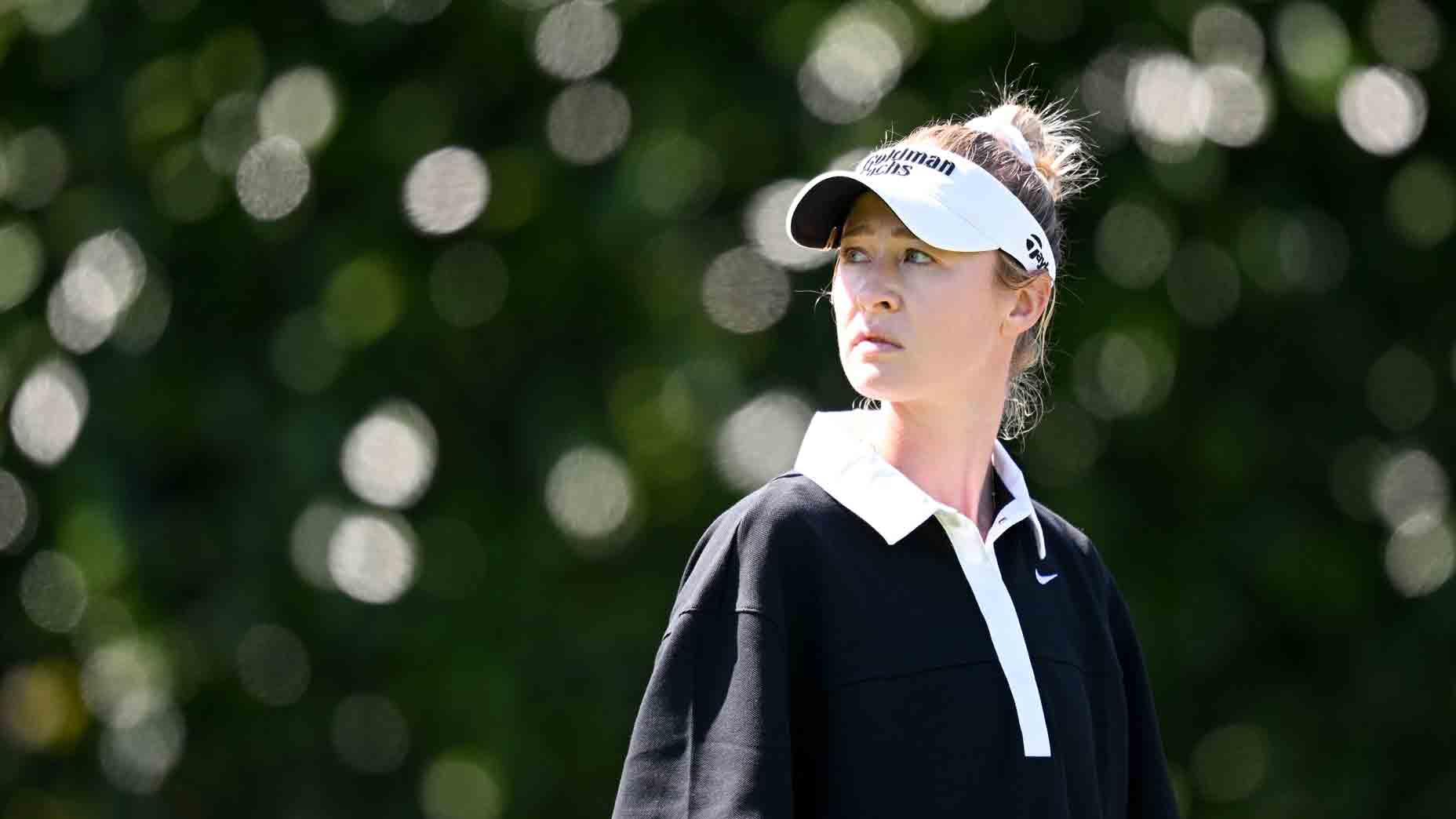Nelly Korda says slow play is just, well, slow. It makes golf longer.
And she says you never get into a flow because of it.
And that your body gets stiff because of it.
Then there are those outside of the ropes who watch slow play unfolding.
“For spectators,” Korda said Wednesday, “it’s no fun to stand around and watch us and see us sit near our tee box or golf ball and not do anything and baking in the sun or whatever weather we are playing in.”
So yes, the world’s top-ranked player remains repulsed by slow play, as evidenced by her answers to questions on the subject ahead of this week’s Amundi Evian Championship. Over the past few years, Korda’s been one of the more vocal critics of the act, and she plays as she preaches too, working as one of the game’s more rapid pros — but she’s also not naive.
Players will seemingly continue to take their time over shots. Maybe a penalty situation will pop up. Whatever the case may be, slow play will live on, and Korda was asked how she keeps her focus, considering tilting could be an understandable option.
Her answer was blunt.
“At the end of the day,” Korda said, “you know you’re playing a round and you’re playing for — no matter what day it is, you’re playing for a championship, so you have to stay focused.
“I think the longer the rounds are, the more mentally draining sometimes they get. At the end of the day, I mean, you just have to kind of suck it up, build a bridge to get over it, and adjust to the circumstances at hand.”
Her solution to curb it, though, is penalty strokes, and this year, the LPGA has seemingly listened. In February, the tour announced that players exceeding 40 seconds to hit would be disciplined — under the new guidelines, if a player exceeds the time by 1-5 seconds, she will receive a fine; should a player take 6-15 seconds over the time to play a shot, she will be hit with a one-stroke penalty; and if a player takes 16 or more seconds than they are allowed, a two-stroke penalty will be charged.
“I think that’s improved on our tour a tremendous amount,” Korda said at the Evian, the year’s fourth of five women’s majors. “At the end of the day, I think that if you start giving penalties to girls taking too long, then they’re not going to want to get penalized a shot or two. That can make a really big difference in whatever they want, prize money, cut, whatever.
2025 Evian Championship: TV schedule, streaming, how to watch, tee times
Kevin Cunningham
“So they’re going to speed up at the end of the day. So the harsher the circumstances, the more they’re going to change.”
Faster play would benefit families, too, she said.
“It’s not fun for the little kids,” Korda said. “Their patience isn’t as good as an adult’s.
“I feel like the more flow and action, the better it is for the crowd. When there is so much stalling and no movement in what we’re doing, that’s kind of no fun, right?”
Notably, the subject of slow play has cropped up at the Evian previously, after Carlota Ciganda appealed a two-stroke penalty for exceeding an allotted time, then, after her appeal was denied, she refused to take the strokes, leading to her disqualification. How this week’s Evian plays out under the new rules, then, promises to be monitored.
Still, Korda is sympathetic to one group that’s known to slow play.
Amateurs.
She said she doesn’t mind lengthy pro-ams.
“My first ever sponsor that I ever got as professional was through a pro-am,” Korda said, “and I met so many incredible people through pro-ams.
“Getting in contact and getting to know these amazing individuals that at the end of the day are coming out and supporting us is a lot of fun for me.”
“>
